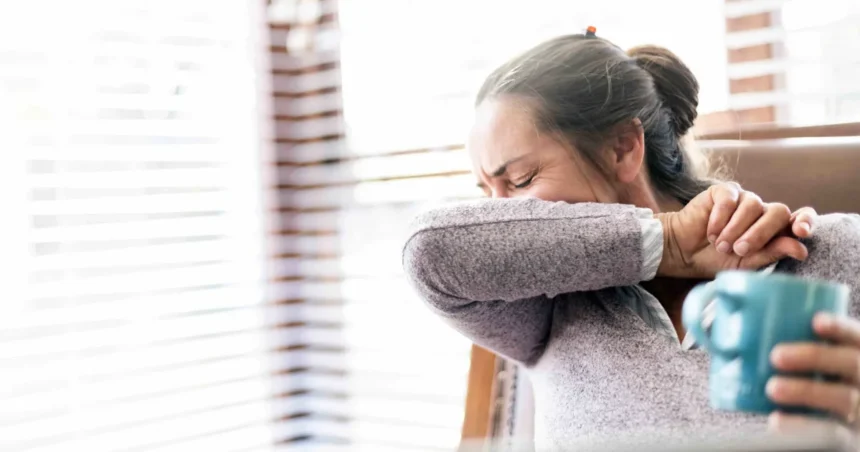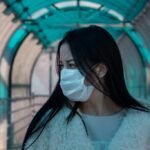Discover the impact of Immunity Theft on your health. Uncover how some illnesses can increase vulnerability. Stay informed
The occurrence of a COVID-19 infection can potentially weaken your immune system against viruses, but could it make you more susceptible to other illnesses? This is a theory presented in a recent scientific article in JAMA Medical News and Perspectives, examining the possible connection between recent increases in COVID and respiratory diseases. The term “immune theft” is being used to express this trend, although it hasn’t been studied thoroughly at this time. So, what is immune theft, and how concerned should you be about it? We’ll explore what doctors specializing in infectious diseases have to say about it.
What is Immunity Theft?
It is essential to clarify that Immunity Theft is not a medical term. However, it is used to describe the theory that SARS-CoV-2, the virus causing COVID-19, “steals” immunity, leaving some individuals more vulnerable to other infections.
This concept differs from the “immunological debt” theory, which suggests a reduction in immune defence against bacteria and viruses due to the absence of exposure to pathogens. (This is commonly referenced in the context of the COVID-19 lockdown and the subsequent increase in cases of flu and RSV.)
Research published in October by the Journal of Family Medicine and Community Health illustrates the idea of immune theft. In the study, researchers analyzed electronic health record data from 61.4 million patients in the United States including 1.7 million children up to the age of 5. They found a significantly increased risk of RSV infection among children who had previously had COVID-19 compared to those who hadn’t.
“Your immune system may not return to normal after COVID-19,” explains Dr. Thomas Russo, a professor and infectious diseases expert at the University at Buffalo, NY. “The best example is in seriously ill patients – they get superinfections that can make them genuinely sick.
However Russo is not a fan of using the term “theft” to describe immune phenomena: “Immunity is something we build not something stolen or needing to be returned,” he emphasizes.
Dr. William Schaffner, an infectious diseases expert and professor at Vanderbilt University School of Medicine also tells Yahoo Life that the concept of immune theft is a “fascinating hypothesis” but notes that it lacks robust scientific evidence at this point.
Nevertheless, some numbers suggest that it could be a real concern. According to Schaffner, initial field data suggests that individuals who have experienced a severe viral illness might have increased susceptibility to another infection for a certain period.”
Can Immunity Theft Occur with Other Health Conditions?
Yes, experts say it can. Those who experience loss, for example, may temporarily “lose defensive protection against other infections,” says Dr. Patrick Jackson, an infectious diseases specialist at UVA Health. “The virus of loss affects immune cells that provide us with long-term immune memory and eliminates them.” They note that individuals who have suffered a loss may be at increased risk of other infectious diseases for months.
Russo suggests that this trend could also occur with the flu. “After the flu, there is a time when people can get better and then develop bacterial superinfections,” he explains. “This occurs due to the influenza infection dampening the immune response, rendering individuals more vulnerable.”
However, Russo points out that this has been “less well worked out” even with COVID-19. Jackson adds, “Immune theft is a real thing that can happen, but I have not seen convincing evidence that it is a significant issue with SARS-CoV-2.”
How to Protect Your Immune System During COVID-19 Recovery?
If you have had COVID-19, Russo notes that you are likely protected from the virus – or at least from a similar type of virus – for some months.
However, Schaffner stresses that knowing this doesn’t necessarily mean you could be more sensitive to other infections as a result. Or, at the very least, it doesn’t mean that you lack immune defences against those viruses. “Just because you have recovered from COVID does not mean you are protected from RSV and influenza!” they say.
If you are concerned about becoming ill after recovering from COVID-19, Schaffner recommends wearing masks in crowded indoor spaces and making an effort to avoid people who cough and sneeze.
Immune system can be protected by eating several natural foods.

Nevertheless, there is very little evidence that having had COVID-19 makes you more likely to develop other illnesses. Therefore, Jackson says, “There is no need for people to do anything special after recovering from COVID that wouldn’t be recommended for everyone, like exercising according to tolerance, eating different types of fresh foods, and not smoking.








Can you be more specific about the content of your article? After reading it, I still have some doubts. Hope you can help me.
Sure
How can i help you?